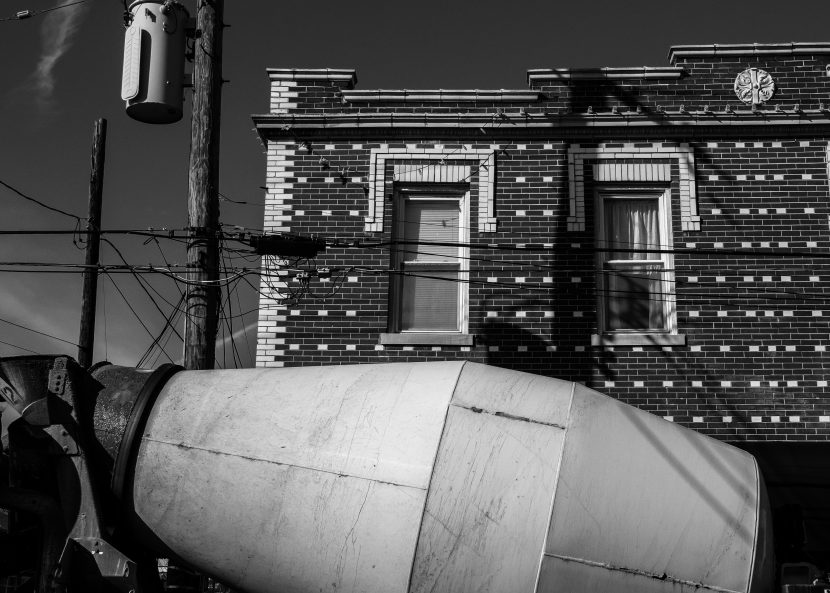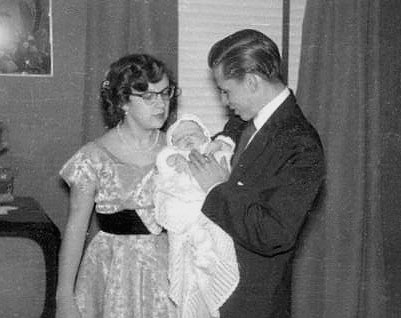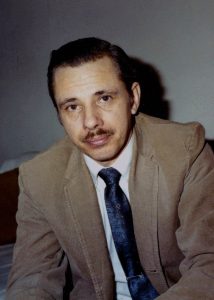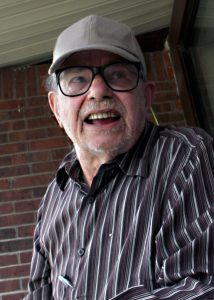By now it should be obvious to everyone that the so-called Pro-Life movement is not interested in confining itself to abortion. They have a definition of it so flexible that some designate birth control as a form of it. The line is not clear. Not to mention that in individual cases there is an evident record of hypocrisy. It’s all right for me, but no one else. It should not be legal.
It makes me uncomfortable.
I do not wish to get into the gears of the matter. I have a couple of observations about the framing issues.
Firstly, the division is largely (though not wholly) a consequence of Belief. At base, if you believe that the fetus is fully human, separate and distinct as a person from the woman carrying it, then you established a moral line difficult if not impossible to cross. There can be no compromise over that. Like other questions of assumed rights, it will not matter what counterarguments are made, the reality is you believe this and there can be no fact that will persuade you otherwise. For a change to occur, you would have to abandon your belief. That would not alter the substance of the belief, only your position in relation to it. Either it is a belief you embrace or it is not.
And no reasoned argument will alter that.
If, in other words, somehow it could be demonstrated that the fetus is not a person, it would change nothing. That would have no validity in the face of your belief.
(To move this out of the abortion arena for a moment, take for example the debate over the Second Amendment. For some, what the framers of the constitution actually meant would now make no difference—the belief in the right to personally own firearms is unassailable, regardless of what facts may be shown to the contrary.)
In any confrontation between deeply-held belief and fact-based alternatives, the latter has no purchase.
However, the chief flaw in the overall Pro-Life argument lies in its deployment as a feint. Again, this is connected to a species of belief, but since it was for so long buried in the rhetoric of “unborn rights” it only recently emerged. Given that a fairly substantial number of those who align themselves with that movement have proven to have feet of clay—namely, many who talk the talk end up availing themselves of the services they so loudly decry—it becomes clear that abortion is not the main issue. They are now going after contraception.
To my mind, going back to those with marrow-deep commitments to the Second Amendment, the reasons for such positions emerge only later. The why of such positions. We should all know now that a sizeable cadre of such gun rights advocates are not insisting on them for matters of self-defense or sports, but because they believe they have a right, even a duty, to overthrow the government. They are nascent revolutionaries. Along with this, there are those who seem to believe they are in an unacknowledged war for the supremacy of one tribe over others. The philosophic issues surrounding the constitution and its presumed properties are secondary to their assumed “right” to defend themselves against the boogeyman of potential oppression. Often in the guise of other ethnicities, immigrants of all stripes, and even political opposites. The insistence on personal firearm possession is part and parcel with an ingrained paranoia that holds that a presumed set of cultural privileges is sacrosanct and will have to be defended against abrogation. We do not have to go far to find historic examples—the entire history of the KKK is based on exactly this kind of thinking.
Such duplicitous thinking underlies many otherwise insurmountable divisions. Within a given group, the supposed “purity” of purpose can be seen to break down on closer examination. It is not a monolith.
Curiously, the one thing that seems to offend them all within their group is the idea that it should be left up to the individual.
So the two issues I’d like to address are conjoined in this instance—firstly, the presumed sanctity of Belief, and secondly the shell games that come about when belief runs into politics.
Let me clear up first the potential pitfall—belief vs Belief. In order to navigate the day, we all have to base certain actions on a level of belief. You have to believe certain things just to get by because there is simply no time to verify every single thing we take on some species of faith. We have to believe that the food we buy from the grocery store is safe. When something goes wrong and there’s an outbreak of e. coli, we have to believe the agencies responsible for our safety will do their jobs. We would go insane to act otherwise. And as a consequence of statistical reality we are right to do so.
(For me, one of the most important things to cultivate in life is a healthy skepticism and an appreciation of doubt. Doubt is essential. I was asked once by someone, quite sincerely, why they should doubt that which they know to be true. The only answer that serves is that while the thing being believed may well be innately true, it is our ability to understand and interpret what it is that we must always doubt. That we have it right is the necessary question. I have no doubt the universe is real and operates according to certain principles. What I must always doubt is my ability to know and understand what those principles are and how they operate. What the True Believer seeks is to eliminate doubt altogether. I do not know if it laziness or impatience or insecurity, but I find this the most baffling aspect of such a position.)
In the back of our minds, though, it is conditional. Under certain extraordinary circumstances, we are also right to suspend our belief in all this, at least temporarily.
I’m not talking about that kind of practical assumption of reliability.
I’m talking about the moment belief becomes Belief, which is a different order perspective. It is the conviction that in all instances under all conditions, Something Is Always True and Reliable, regardless of any evidence to the contrary. With Belief comes intransigence. With Belief comes a conviction that one is being lied to by those who do not share said Belief. With Belief comes a rejection of evidence arbitrarily, based on how it may or may not conform to the scaffolding of Belief.
With Belief comes a vein of conviction, often constrained but always there, that anyone living otherwise is a potential if not actual enemy. And because of the presumed lies and the nonconformity and the absence of like-mindedness, any level of duplicity is justified because this is a war. In other words, Crusade is an acceptable response to differences of opinion and an insistence that there is more than one way to live one’s life.
Most of the attributes of a personal view of life well lived have long since subsided into minor things that cause little friction between people. All that is required for social harmony is a modicum of attention and respect for differing choices. We do not see seismic convulsions over dietary differences (although it may be possible to imagine one over the omnivore vs vegan question). We simply recognize differences and do not impose a monolithic preference.
Underlying and permeating this level of Belief is a deep and often unexamined insistence that the world conform to our expectations. That contrary positions be extirpated. That differences over key issues be eradicated. That everyone should be the same. And underlying that is the assumption that the Believer has the right viewpoint and has not only the right but the obligation to impose it on everyone else.
Mostly, this rarely rises above an ongoing anxiety that things do not conform.
But the central tension resides in a refusal to acknowledge that those who do not share your Belief have a right to hold their own.
We come now to where it erupts into conflict, namely social policy.
We’re seeing another example in Oklahoma right now, where a debate over the opening of a new—religious—charter school is unfolding because public funding is involved. I understand the concerns of both sides of this argument, and have felt personally for years that this is a conundrum with an easy solution, at least in terms of policy. My solution, however, would have the added consequence of driving partisans into the open to declare their actual intent. People have a tendency to camouflage their true desires, probably because a bold statement will be met with bold resistance. We live in an era in which major policy demands are too often couched in euphemism or hidden inside secondary or tertiary issues in order to slip the real goal in like a trojan horse. To state baldly that you want a school where children are spoon-fed religious ideology is a non-starter. So all the other reasons for establishing a separate, non-public institution are given. (My solution? Include religion in public schools, as part of history or even separately as a class on World Religions. Teach them all, give them all equal time. I suspect the howl of protest would quick strip the veneer of First Amendment concerns touted by partisans of a given creed.)
This is where Belief comes into conflict with the World. Belief dictates a preferred state, a template of how things ought to be, and where possible informs a drive to make the world conform. Giving equal time and respect to competing Beliefs is simply nonsense against such deeply held desire.
In a democracy, it is the back-and-forth that we recognize as the Will of the People that undermines any and all such attempts at enforced conformity. This is a brute-force method, of course, and too often satisfies no one, but it allows for the one thing that does effectively alter Belief—experience.
Even a cursory look at history shows that once deeply-held Beliefs have changed significantly, that the unquestioned givens of one period are the subject of bewildered speculation now. The only thing common to all this is experience, which erodes the details and eventually forces what we know to be true to change to accommodate a world that apparently had never been what the Beliefs of the Day said it was. Time and experience work like tides to alter and sometimes obliterate Beliefs.
Which understanding serves only to underscore the impermanence of them. We are taunting fate to insist that we must hold fast to ideas in the face of a reality that cares nothing for our wishes.
But then we come to the most intransigent aspect of Belief and that is where it coincides, reifies, and validates Identity. Our Beliefs, we imagine, are who we are.
What we have done historically in this country could be described as a series of holding actions, one part of the community erecting barricades to another until something new emerged from the confrontation. This has happened repeatedly and rarely without pain. The one thing that makes it all seem different now is our ability to see it as it happened, even if we are not directly involved. And that seeing elicits an opinion, a stand. The buffer of long communication has eroded to almost nothing. In many ways, this is a good thing. We have no excuse being surprised by injustices happening somewhere else. But the erosive effect on Belief has also accelerated. We are trying to establish that which will not change, under the assumption that principles are eternal. Well, perhaps some may be, but their formulation and the conditions in which they are expressed are not. What they are is water. Water is always water but the way it flows, where it rests, its very manifestation is mutable.
What makes this all the more difficult is the fact that there are dispassionate forces willing and able to take advantage of these differences to exercise power. I say dispassionate, but only in very specific aspects—those who crave power could actually not care less for the specifics of a given Belief. If they could get what they want by fostering and manipulating completely different sets of Beliefs, they would. All they want is the chasm between partisan advocates into which they may step and benefit by the conflict.
And we let them, because we are blinded to that by the nature of the Beliefs they exploit to their advantage.
I’m examining all this in order to find a way to navigate the current landscape. It has always bothered me when reason, backed by fact, fails to persuade. It took a long time for me to realize that I was not facing a reasoned position, but an expression of Identity that cannot yield, not without fundamentally changing its own nature. That is a tremendously difficult ask. It may or may not help to understand that eventually, the separation itself will yield to the erosion of experience. When some one or some group thrusts their Belief into a question that bears on people with whom they disagree, such disagreement a consequence of those same Beliefs, it comes down to a matter of assertion alone. Commonalities go by the wayside until—finally—experience erodes the division enough that some kind of compromise or altered perspective has a chance to manifest. In the meantime, other factors enter into the argument that most of time alter the question sufficiently that it becomes a new issue.
This is not conclusive. I’m still working all this over. But my inclination is to reject the assertions of those who offer only the testimony of their Belief as sufficient argument to impose their views on everyone.
I’ll come back to this in future.




 From all I have gathered, dad did everything he could to make a fine and nurturing home. He had come from domestic circumstances that were far from ideal, from an alcoholic and abusive father and an apparently resentful if dutiful mother. He had been a late baby for her, giving birth to him when she was 40. While that is less uncommon today, in 1930 that was not only unusual but entailed more risk. There was a considerable age difference between Henry and his siblings and he ended up the last to leave home, which he had to do under fraught circumstances. It seemed that he was determined to do better for his own family.
From all I have gathered, dad did everything he could to make a fine and nurturing home. He had come from domestic circumstances that were far from ideal, from an alcoholic and abusive father and an apparently resentful if dutiful mother. He had been a late baby for her, giving birth to him when she was 40. While that is less uncommon today, in 1930 that was not only unusual but entailed more risk. There was a considerable age difference between Henry and his siblings and he ended up the last to leave home, which he had to do under fraught circumstances. It seemed that he was determined to do better for his own family.